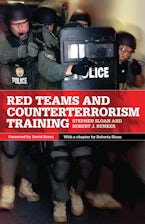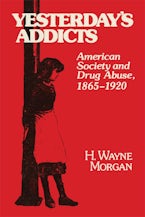LAW / Criminal Law / General
Showing results 1-5 of 5
Filter Results OPEN +

A Promise Kept
The Muscogee (Creek) Nation and McGirt v. Oklahoma
A Promise Kept explores the circumstances and implications of McGirt v. Oklahoma, likely the most significant Indian law case in well over 100 years. Combining legal analysis and historical context, this book gives an in-depth, accessible account of how the case unfolded and what it might mean for Oklahomans, the Muscogee (Creek) Nation, and other tribes throughout the United States.
When Law Was in the Holster
The Frontier Life of Bob Paul
One of the great lawmen of the Old West, Bob Paul (1830–1901) cast a giant shadow across the frontiers of California and Arizona Territory for nearly fifty years. Today he is remembered mainly for his friendship with Wyatt Earp and his involvement in the stirring events surrounding the famous 1881 gunfight near the OK Corral in Tombstone, Arizona. This long-overdue biography fills crucial gaps in Paul’s story and recounts a life of almost constant adventure.
Blackfoot Redemption
A Blood Indian's Story of Murder, Confinement, and Imperfect Justice
Blackfoot Redemption is the riveting account of a Canadian Blackfoot known as Spopee and his unusual and haunting story. To reconstruct the events of Spopee’s life—at first traceable only through bits and pieces of information—William E. Farr conducted exhaustive archival research, digging deeply into government documents and institutional reports to build a coherent and accurate narrative and, through this reconstruction, win back one Indian’s life and identity.
Red Teams and Counterterrorism Training
Keeping ahead of terrorists requires innovative, up-to-date training. This follow-up to Stephen Sloan's pioneering 1981 book, Simulating Terrorism, takes stock of twenty-first-century terrorism—then equips readers to effectively counter it. Quickly canvassing the evolution of terrorism—and of counterterrorism efforts—over the past thirty years, co-authors Sloan and Robert J. Bunker draw on examples from the early 2000s, following the World Trade Center and Pentagon attacks, to emphasize the need to prevent or respond quickly to "active aggressors"—terrorists who announce their presence and seek credibility through killing.
Yesterday's Addicts
American Society and Drug Abuse, 1865–1920
Yesterday’s Addicts: American Society and Drug Abuse, 1865–1920 examines the roots of drug abuse in the United States from the end of the Civil War to the end of World War I. Through contemporary articles and reports, this book focuses on public attitudes toward drug abuse, different forms of drug abuse, firsthand accounts by drug abusers, and reasons why the United States has attempted to control drug abuse.

A Promise Kept
The Muscogee (Creek) Nation and McGirt v. Oklahoma
A Promise Kept explores the circumstances and implications of McGirt v. Oklahoma, likely the most significant Indian law case in well over 100 years. Combining legal analysis and historical context, this book gives an in-depth, accessible account of how the case unfolded and what it might mean for Oklahomans, the Muscogee (Creek) Nation, and other tribes throughout the United States.
When Law Was in the Holster
The Frontier Life of Bob Paul
One of the great lawmen of the Old West, Bob Paul (1830–1901) cast a giant shadow across the frontiers of California and Arizona Territory for nearly fifty years. Today he is remembered mainly for his friendship with Wyatt Earp and his involvement in the stirring events surrounding the famous 1881 gunfight near the OK Corral in Tombstone, Arizona. This long-overdue biography fills crucial gaps in Paul’s story and recounts a life of almost constant adventure.
Blackfoot Redemption
A Blood Indian's Story of Murder, Confinement, and Imperfect Justice
Blackfoot Redemption is the riveting account of a Canadian Blackfoot known as Spopee and his unusual and haunting story. To reconstruct the events of Spopee’s life—at first traceable only through bits and pieces of information—William E. Farr conducted exhaustive archival research, digging deeply into government documents and institutional reports to build a coherent and accurate narrative and, through this reconstruction, win back one Indian’s life and identity.
Red Teams and Counterterrorism Training
Keeping ahead of terrorists requires innovative, up-to-date training. This follow-up to Stephen Sloan's pioneering 1981 book, Simulating Terrorism, takes stock of twenty-first-century terrorism—then equips readers to effectively counter it. Quickly canvassing the evolution of terrorism—and of counterterrorism efforts—over the past thirty years, co-authors Sloan and Robert J. Bunker draw on examples from the early 2000s, following the World Trade Center and Pentagon attacks, to emphasize the need to prevent or respond quickly to "active aggressors"—terrorists who announce their presence and seek credibility through killing.
Yesterday's Addicts
American Society and Drug Abuse, 1865–1920
Yesterday’s Addicts: American Society and Drug Abuse, 1865–1920 examines the roots of drug abuse in the United States from the end of the Civil War to the end of World War I. Through contemporary articles and reports, this book focuses on public attitudes toward drug abuse, different forms of drug abuse, firsthand accounts by drug abusers, and reasons why the United States has attempted to control drug abuse.






